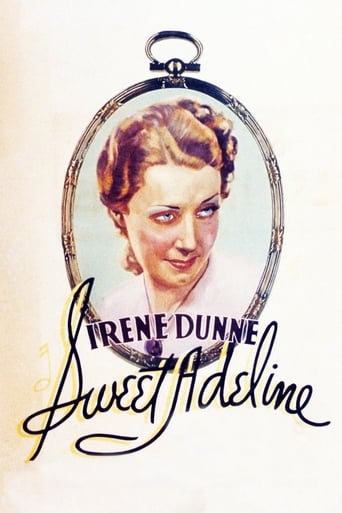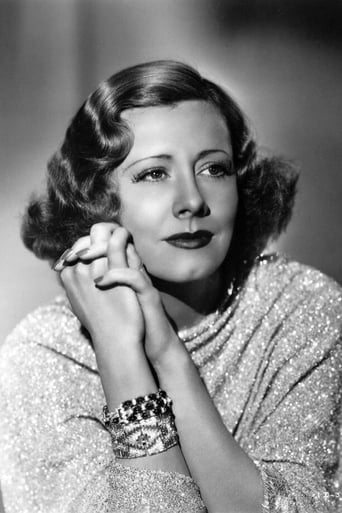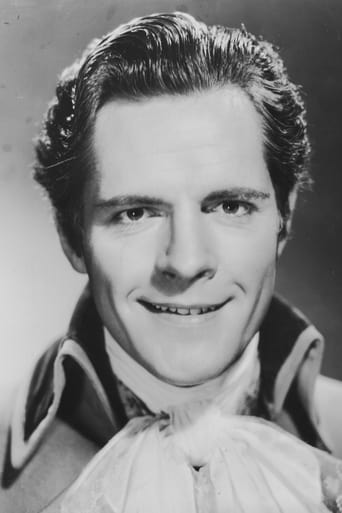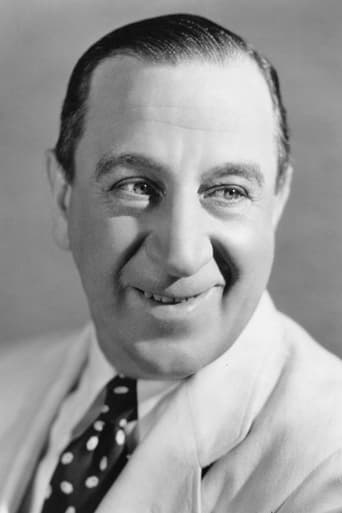Sweet Adeline (1934)
In 1898, composer Sid Barnett manages to get his sweetheart, Adeline the beer-garden singer, to sing the lead in his new Broadway operetta; this infuriates Elysia, the erstwhile star. But Sid frets as Adeline spends increasing amounts of time with the dashing Major Day.
Watch Trailer
Free Trial Channels
Cast


Reviews
That was an excellent one.
Brilliant and touching
One of the worst ways to make a cult movie is to set out to make a cult movie.
This is one of the best movies I’ve seen in a very long time. You have to go and see this on the big screen.
Irene Dunne is "Sweet Adeline," who sings in a beer garden and has aspirations as a professional singer. Her father is opposed to Donald Woods, who write songs, as a suitor. Hugh Herbert plays an eccentric yet likable character (when did he not), who is trying to catch a spy, who is a famous singer. All this sounds admittedly simple-minded, undemanding and corny, but that's why I found it to be refreshing. Hugh Herbert's scenes with Nydia Westman, as Irene's sister, were very natural and were genuinely amusing/funny. Perhaps the highlights of the film are the outstanding songs written by Kern/Hammerstein, sung to perfection by Ms. Dunne. Despite the old feel of this film, I would watch this again, not expecting much except a good, easy-going time with Irene Dunne and company.
Irene Dunne and the songs by Jerome Kern and Oscar Hammerstein were the biggest two reasons for seeing 'Sweet Adeline' in the first place. Have also liked some of Mervyn Leroy's films, especially 'Waterloo Bridge' and 'Random Harvest'.'Sweet Adeline' is certainly watchable, but at the same time it is unremarkable though with enough big merits. Dunne and the songs as well as being the two selling points are also the best things about the film. Dunne looks luminous with the camera clearly loving her, charms the socks off and sings like a nightingale, definitely a role that suits her to a tee. The songs by Kern and Hammerstein are so good that they are enough to redeem any film, regardless of overall quality, more than one notch, the highlights being "Why Was I Born?", "Don't Ever Leave Me" and "Here Am I".Production values are very lavish, the production design is very pleasing on the eyes while 'Sweet Adeline' is beautifully shot and slickly edited. Of the rest of the cast, coming off best are a debonair but also sinister Louis Calhern and a zesty Wini Shaw. Ned Sparks is amusing too. The dancing and choreography is lively enough as well, and LeRoy makes the most of the production values and of how Dunne looks on film.Letting 'Sweet Adeline' down in particular are the story and Donald Woods. The story is dull, thin and creaks badly, while also going well overboard on the winsome and cornball factors. The nostalgia is lovely however. Woods is so lifeless, wooden and charisma-free as the leading man here that he gets completely lost amidst everything else. The script also doesn't feel as funny or as emotionally investable as it ought, also sounding sketchy and awkward often.The scenes with Sparks and Hugh Herbert also feel like filler that drag the film down. Sparks is amusing and some of his lines are good, but Herbert has always been an acquired taste and does try too hard for laughs that it really grates on the nerves. LeRoy's direction is very good from a stylistic standpoint but from a storytelling point of view it lacks momentum and just feels like his heart wasn't completely in it.On the whole, very watchable but didn't have me jumping out of my chair with excitement or such. Dunne and the songs are the best things about it. 6/10 Bethany Cox
It's hard to determine if this is a good example of film operetta because they are usually much different than their stage productions, less stagy and melodramatic than their Broadway versions. This movie has several different element in its narrative, which sometimes makes it seem like its moving all over the place and sometimes out of place with the fast-moving Warner Brothers films of the mid 1930's. This is the story of a Newark barmaid who is cast in the lead of an early Broadway operetta, her romantic issues with the film's composer, and the vindictive (and massively untalented) singer who sabotages her opening night. In a sense, this seems to be a full-length version of the musical shorts that Warner Brothers was making at the time, some of them streamlined versions of their early talkie musicals. Irene Dunne is a charming actress, her singing voice perfect for the few movie musicals she did, coincidently all based upon Jerome Kern Broadway hits. She is definitely perfect for singing the show's best known sing, "Why Was I Born?", originated on Broadway by her movie "Show Boat" co-star Helen Morgan.Torn between two men (Donald Woods and Louis Calhern), Dunne has no idea of the danger following her in the form of Winifred Shaw, unfortunately cast as one of the most vile spider women in film history. For this singer to sound so shrill (considering her participation in other Warner Brothers musicals of the mid 1930's), and be so sinister, she's like the character out of a silent movie. In smaller supporting parts, Ned Sparks, Hugh Herbert and Joseph Cawthorne are amusing, but underused. A hundred dancers got together for the movie's two big production numbers, choreographed by Bobby Connelly in the manner of Busby Berkley. At one point, the chorus girls seem to be floating in mid air. A minor subplot involving a spy ring is briefly brought into the story and seems out of place, as if some footage concerning this ended up on the cutting room floor.This will never surpass the magnitude of "Roberta" or "Show Boat" for its composer and star, or the originality and influence of Warners' other musicals of this period, but in spite of its extremely dated material, it remains an interesting curio in the career of its leading lady with those opulent production numbers and that horrifying bit of needless revenge, a true curtain faller.
SWEET ADELINE (Warner Brothers, 1934), directed by Mervyn LeRoy, released January 1935, continues the cycle of backstage musicals that began successfully with 42nd STREET (1933). Breaking away from the usual Depression-era backdrop, Warners obtained the rights to an earlier stage play starring Helen Morgan, shifted its story to the turn of the century, and acquired the music and lyrics not by the current team of Harry Warren and Al Dubin, but by the more legendary names of Jerome Kern and Oscar Hammerstein. However, in true Hollywood tradition, the screen adaptation strays away from the original adding material of its own.Set during the Spanish-American war, circa 1898, the story, revolves around Adeline (Irene Dunne) a Hoboken barmaid and daughter of Oscar Schmidt (Joseph Cawthorn), a beer garden owner, who wants her to marry Major James Day (Louis Calhern), a man of title and wealth. However, Adeline loves Sid Barnett (Donald Woods), a struggling young composer who hopes to get his music published for an upcoming show for the Love Song Company. Barnett wants Adeline as his leading lady, but because her name isn't relatively known to attract an audience, he is forced to star Elysia (Winifred Shaw), a bad singer who happens to be a espionage spy. After the story shifts from Hoboken to New York City, Elysia, who loses the lead to Adeline, becomes resentful, coming between her and Sid, later making an attempt in having her meets with an "accident" during a performance.The Music and Lyrics by Jerome Kern and Oscar Hammerstein include: "The Polka Dot" (sung by Dorothy Dare); "There'll Be a High Time in the Old Town Tonight" (sung by chorus in background); "Here Am I," "We Were So Young." "Why Was I Born?" (all sung by Irene Dunne); "Oriental Moon" (sung by the unbilled Noah Beery as the Sultan); "Molly O'Donahue" (Sung by Phil Regan); "Lonely Feet" (sung by Irene Dunne); "T'Was So Long Ago" (sung by Joseph Cawthorn, Irene Dunne, Phil Regan, Hugh Herbert and Nydia Westman); "Pretty Little Kitty Lee" (sung by trio); "Lonely Feet" (sung by Dunne/chorus); "We Were So Young" (sung by Regan and Dunne); "Down Where the Wurtzburger Flows" (sung by chorus); "Don't Ever Leave Me" and "Don't Ever Leave Me" (reprize, both sung by Dunne). Of the handful of tunes, only "Lonely Feet" and "We Were So Young" are given the production number treatment as choreographed by Bobby Connolly.A backstage story with limited details of dress rehearsals, it's not precisely an exciting production, but does score points when it comes to nostalgia. Starring the sophisticated Irene Dunne, on loan from RKO Radio, it marked the beginning of her brief career in musical films. The others that followed: ROBERTA (RKO, 1935), benefited from the support of Fred Astaire and Ginger Rogers; while SHOW BOAT (Universal, 1936), succeeds as being the best due to its reputation. A gifted soprano as she was in dramatics and later comedy, Dunne adds dignity to a story much needed of a better script. Donald Woods, who is best as a secondary performer than a leading man, does what is necessary to bring life to his character; Winifred Shaw as the femme fatal, sports an unconvincing accent that's supposed to be Spanish, but sounds more like the French actress Fifi D'Orsay; Louis Calhern as the debonair major who comes between Sid and Adeline, who in turn uses him to make Sid jealous, becomes the show's backer in order to win her over; Nydia Westman supports as best Adeline's friend who's love interest happens to be the befuddled Rupert (Hugh Herbert); the cute and pert Dorothy Dare as a singing female bandleader who appears in the film's opening and closing, having no connection with the story, while Irish tenor Phil Regan vocalizes during the dress rehearsals.SWEET ADELINE amounts itself with some doses of amusement, including some inside humor, ranging from a little boy auditioning who turns out to be that Jolson kid, Al that is, along with reliable character actors Hugh Herbert and Ned Sparks (as the show's director) in their funny moments with their one-liners: Sparks: "See that step. It's a very hard step to do." Herbert: "Why do they do it?" (Sparks' reaction to that answer is priceless. Watch for it). And then there's Herbert's attempt to fool people with his disguises, now that he is Operator 66 for the Department of Justice, and being recognized anyway, does provoke some good laughs as well.SWEET ADELINE, distributed on video cassette around 1992, and currently out of print, formerly shown on Turner Network Television during its early days of broadcasting that began in 1988, can be seen on Turner Classic Movies, especially on December 20th, as a tribute to Irene Dunne's birthday. The movie may not be perfect, but being more like a nostalgic trip down melody lane makes this 87 minute operetta palatable. (***)








